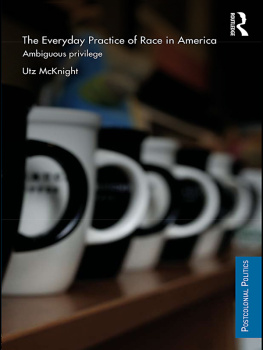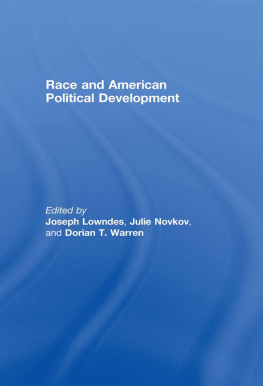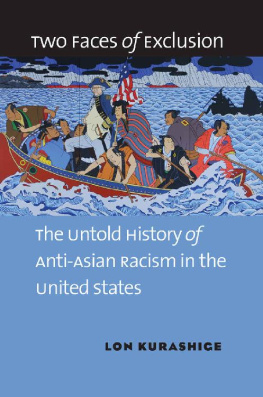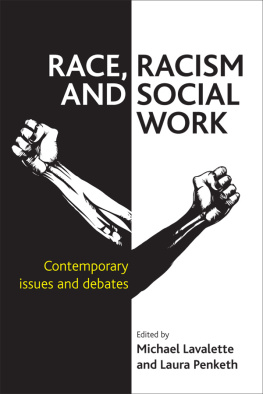First published 1999 by Ashgate Publishing
Reissued 2018 by Routledge
2 Park Square, Milton Park, Abingdon, Oxon, OX14 4RN
711 Third Avenue, New York, NY 10017
Routledge is an imprint of the Taylor & Francis Group, an informa business
Copyright Andy R. Brown 1999
All rights reserved. No part of this book may be reprinted or reproduced or utilised in any form or by any electronic, mechanical, or other means, now known or hereafter invented, including photocopying and recording, or in any information storage or retrieval system, without permission in writing from the publishers.
Notice:
Product or corporate names may be trademarks or registered trademarks, and are used only for identification and explanation without intent to infringe.
Publisher's Note
The publisher has gone to great lengths to ensure the quality of this reprint but points out that some imperfections in the original copies may be apparent.
Disclaimer
The publisher has made every effort to trace copyright holders and welcomes correspondence from those they have been unable to contact.
A Library of Congress record exists under LC control number: 98073857
ISBN 13: 978-1-138-32696-5 (hbk)
ISBN 13: 978-1-138-32699-6 (pbk)
ISBN 13: 978-0-429-44952-9 (ebk)
This book is concerned with what I take to be the problem of the theory of the New Racism which focused on the impact of Smethwick and Powellism on the formation of a political racism in Parliamentary and public debates in the period 1957-1988. It is a discourse based study, since the focus of the book is that history that can be collected, organised and interrogated within the texts and talk produced by politicians and political and public institutions during this period. The most importance sources here are Parliamentary Debates (Hansard) on Immigration, Race Relations and Nationality; political speeches and writing, journals, commentaries and newspapers.
Although I am a sociologist by inclination, the book addresses the question of the political analysis of racism in terms of the theories of neopost-marxism, post-structuralism and discourse analysis. However, the book's chief virtue is that it engages such ideas at the level of detailed analysis of Parliamentary and public debates and their social and political frameworks. The focus of the book is necessarily historical since the moment of Smethwick and Powellism has long gone, but the question of their relationship to, and impact upon, the formation of what some have claimed as a New Racism is very much a contemporary question, as the book will seek to reveal.
The purpose of this opening section will be to map out some of the key issues, concepts and debates that the book will address and how these issues correspond to the chapter layout and overall structure of the book. The content of the book is organised into three broadly thematic sections. Part one looks at the problem of racist political language, as exemplified in the language and politics of Peter Griffiths and Powellism, and how this problem has been addressed by (I) neo-marxist accounts of racialisation and (ii) in the exposition of the New Racism thesis. The argument pursued in the these opening chapters is that the theoretical problem the New Racism opens up is a challenging one for racialisation approaches, and for sociology in particular, but that the New Racism argument itself does not engage sufficiently with sociological arguments that precede it or the structural account of political racialisation developed by the neo-marxists. What is needed, I argue, is an approach that can combine insights from both within an approach that recognises the specific features of the postwar political conjuncture and the role of political language analysis within it.
Part two of the book examines the substantive evidence from Parliamentary Debates concerning the discursive formation of what I define as Parliamentary Commons' sense, and the extent to which this evidence is consistent with the claim for the emergence of a new racist discourse that marks the transition from Smethwick to Powellism. This section, drawing on extensive textual evidence from Parliamentary Debates from 1957-1968, and from 1968-81, argues that the significance of Powellism cannot be contained within the framework the New Racism theorists offer and that the evidence does not support their argument for a break in the formation of a discourse of exclusionism centred around the emergence of Powellism. On the contrary, there is much evidence to show that Powellism reveals a textual affinity with the development of a anecdotally based, backbench racism and that the discursive relationship it forms with this discourse is both parasitic and transformative.
These arguments prepare the way for the detailed analysis of the discursive significance of Smethwick and Powellism, in terms of their relationship to and impact upon the formation, within Parliamentary and political debates, of a racist language of exclusion, which is achieved within Parliamentary Debates from the mid 1950s onwards. The success of this language is the way in which it manages to re-articulate the absent signifier of 'race' within an emergent discourse of the beleaguered Englishman, awoken to a community transformed by the impact of postwar black migration. It is a discursive formation that is centred by the anecdotal language of local experience and political neglect, and it is this discourse that is refined within the local campaign conducted by Peter Griffiths, at Smethwick, which finally achieves national impact within the politics and language of Powellism in 1968. However, Powell is the elite beneficiary of this language strategy not its author. Part three of the book presents the evidence that can support such an interpretation; presents the most detailed account of the language and politics of Powellism, yet attempted.
This final chapter shows how Powellism articulates the anecdotal discourse of the local politics of immigration with a revived authoritarian patriotism and political populism. While the resultant mixture is peculiarly Powellist, the chapter argues, such a political articulation is only possible because of the prior development of the backbench racism of the absent signifier, which Powell is able to connect with a receptive political audience, outside of Parliament. The wider explanation for this event are the special political context obtaining, involving the institutional prohibition on 'race' talk, and the inability of Labour to contest the articulation of this racism at the grass roots level. The remainder of this opening section will address the issues and ideas that underpin the development of the argument we have just outlined.
The Problem of the New Racism
I define the theoretical problem of new or modem racism as the problem of the decipherment and designation of public-political languages of group separation and exclusion as racist, when such language forms are encoded by a cultural logic of difference and accompanied by elite disclaimers of racism, in a debate context which is understood by critical-linguistic, sociological and other approaches as informed by discriminatory motives, and which results in the production of legislation that confirms such fears (cf. Reeves 1983; van Dijk 1993b). It is clear from this summary definition that the new racism thesis does not address all aspects of the problem it has come to define but it does provide the most consistent theoretical account of key aspects of the phenomenon.








